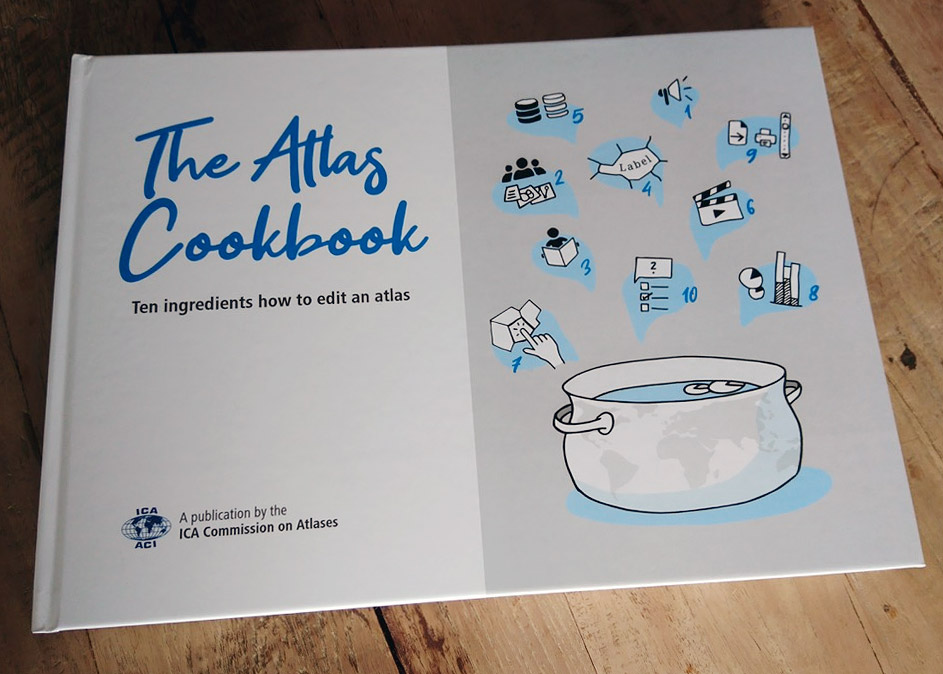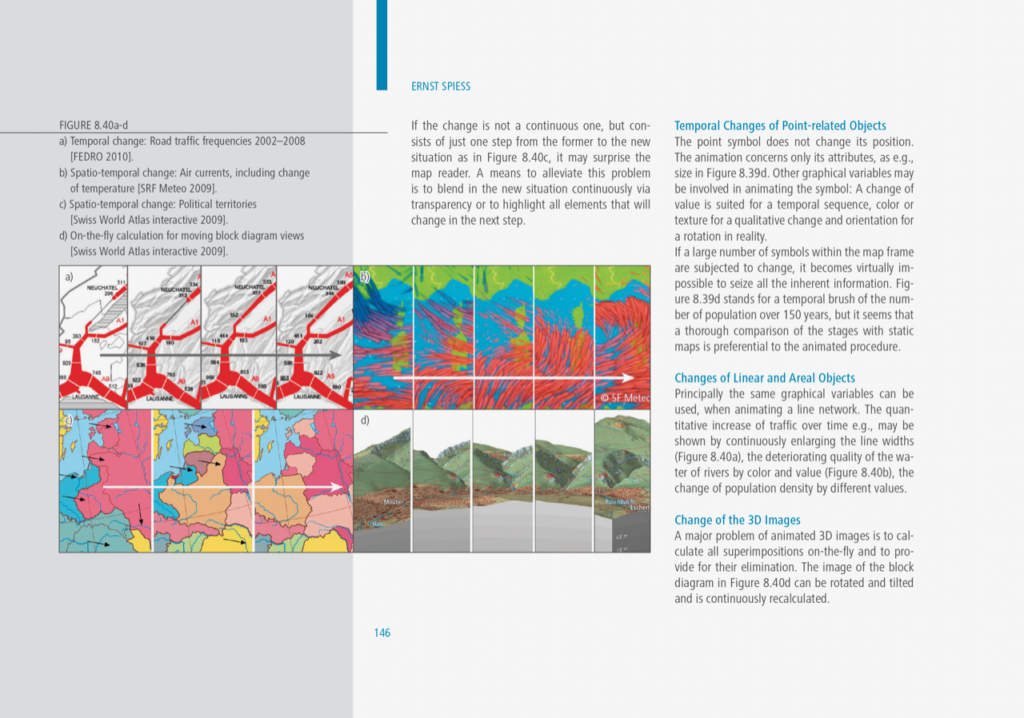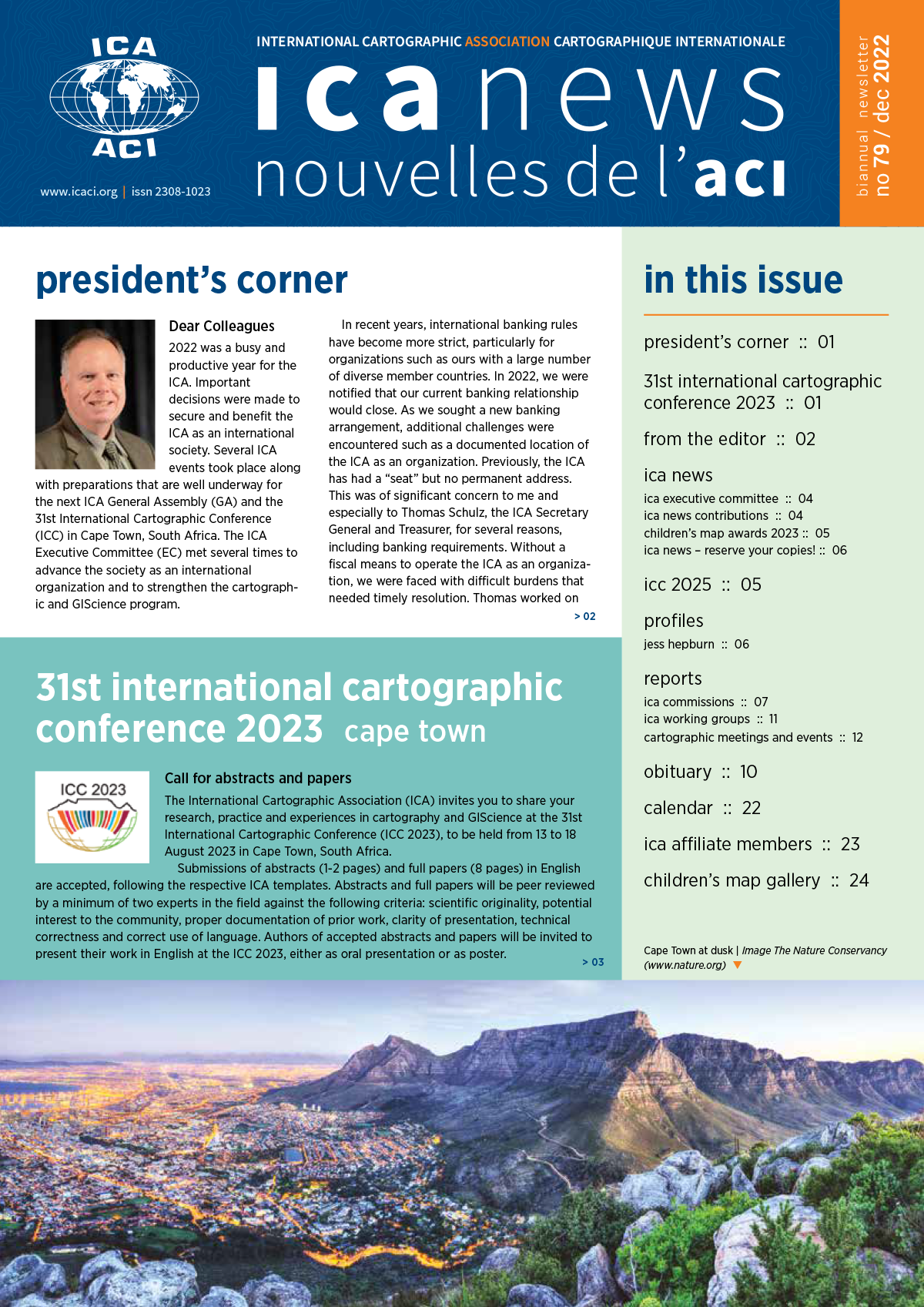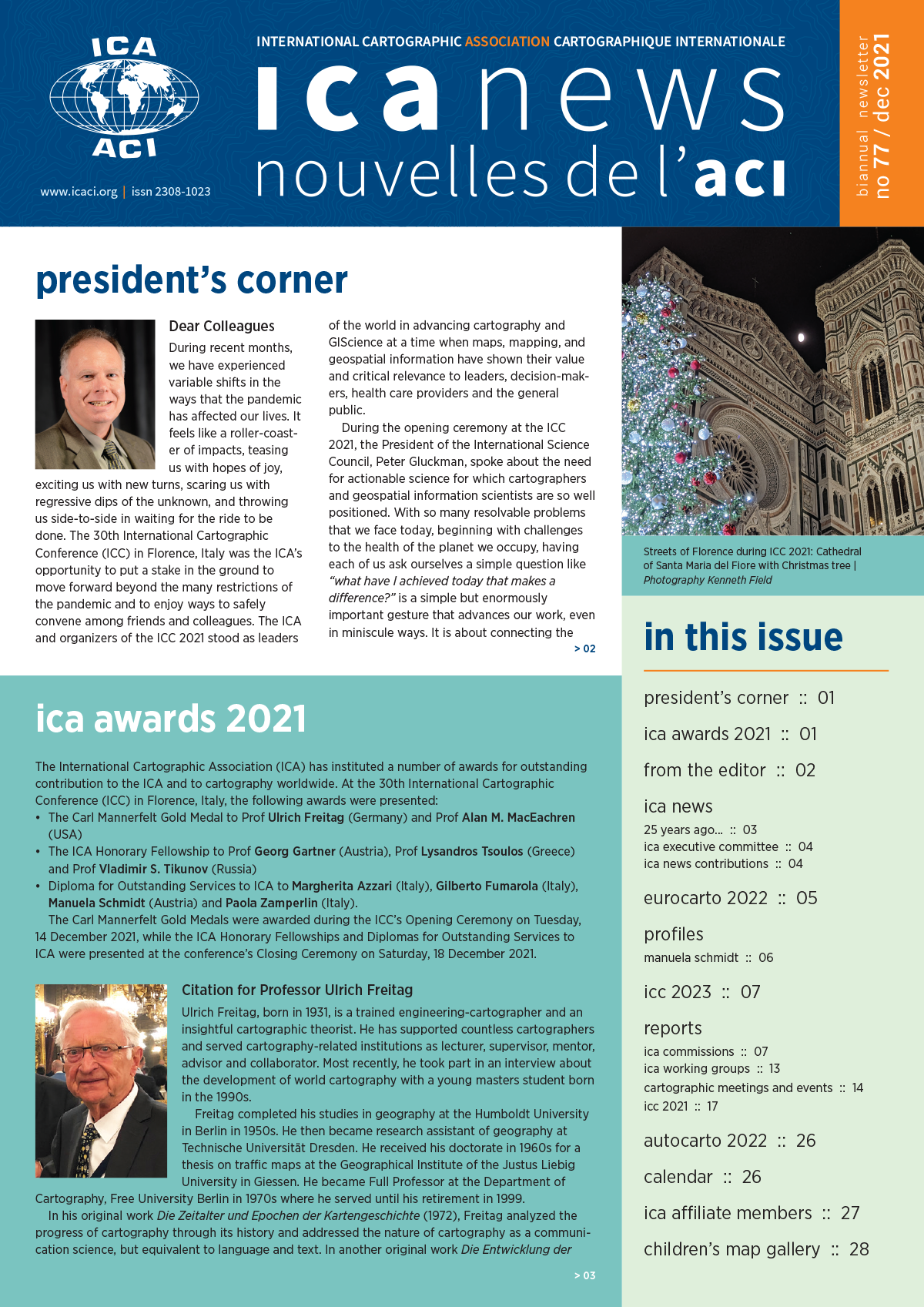The ICA Commissions on Visual Analytics and Cognitive Issues in Geographic Information Visualization are pleased to announce a Workshop on Cartography and AI (MapAI 2023) taking place on August 12, 2023 in Stellenbosch, South Africa before the ICC 2023.
Motivation
Cartographers have assessed the potential use of artificial intelligence for mapping for decades. Early work on expert systems explored AI as early as the 1980s (e.g., Buttenfield 1984; Fisher & Mackaness 1987; Brassel & Weibel, 1988; Johnson & Basoglu 1989). The AI tools of the time were limited by the (lack of) availability of computing power and data. More recently, as AI tools have become both more powerful and easier to use, a few cartographers and computer scientists have begun experimenting with artificial intelligence technologies to see how they might be applied to maps and mapping processes (e.g., Kang et al., 2019; Zhao et al, 2021; Christophe et al., 2022; Zhou et al, 2022; Santos et al., 2023). Others have made initial efforts to review the potential of AI technologies for cartography (Kang et al., 2022), laying out some possibilities and also some points of caution by identifying ethical issues these technologies raise and/or exacerbate. The 2022 launches of DALL·E 2, ChatGPT, and other AI platforms have caught the attention of the general public by making artificial intelligence technologies easy to use for a range of everyday tasks. Some cartographers have already put these to use for assisting their mapping practice (see, for example, https://www.youtube.com/watch?v=OCOpxy3wk-o). There is much more for cartographers to explore, including the potential impacts of the use of AI on map users’ and map makers’ cognitive processes (see Keskin & Kettunen, 2023 for an initial investigation).
In this workshop, we aim to bring together ideation and practical experimentation to collaboratively explore some of the potential and limits of current AI technologies for cartographic practice and map use.
Call for Presentations
The first half of our planned 1-day workshop will be for participants to present Lightning Talks. In 5 minutes presenters will showcase either one major challenge or one significant opportunity you see that intersects between AI and Cartography.
These presentations should focus on frontiers in cartographic research that intersect with AI tools or techniques, and creative/unorthodox approaches are welcomed. Work-in-progress is the intended target, versus projects that are already fully completed.
Example topics could include, but are not limited to:
- Implications of deepfake maps and satellite images
- Machine-learning / AI based map updating based on image input
- AI-generated wayfinding directions
- Geographic aspects of algorithmic bias
- Automated means of iterating design elements in cartographic layouts
- Explainable AI & mapping
- Natural language interaction with maps
- Mapping with ChatGPT, DALL-E, Midjourney, Stable Diffusion, etc…
- Human-machine collaboration using maps
Workshop presentations will be used to motivate group discussions and hands-on experimentation in the second half of the planned 1-day workshop. We are excited to work together to push the limits of various AI mechanisms for cartographic design and inquiry, learning along the way about where the frontiers lie for future research and applications of AI in Cartography.
Submission Details
Please submit an abstract of <250 words that showcases either one major challenge or one significant opportunity that intersects AI and Cartography by May 15, 2023 to EasyChair. All submissions will be reviewed by the workshop organizers for clarity and fit with workshop themes. A final workshop agenda including accepted talks will be communicated by June 23, 2023.
Venue & Workshop Logistics
This workshop will take place on August 12, 2023 in Stellenbosch, South Africa. If you are attending the ICC 2023 in Cape Town, Stellenbosch is roughly an hour away by Taxi/Private Car. We recommend staying in Stellenbosch for 1 or 2 nights if you prefer not to commute to/from Cape Town. Stellenbosch is famous for its wineries and there are many scenic hotels located on wineries nearby.
We will notify authors and publish a preliminary workshop schedule by June 23, 2023.
Organizers
- Amy L. Griffin, RMIT
- Anthony C. Robinson, Penn State University
- Arzu Çöltekin, FHNW – University of Applied Sciences Northwestern Switzerland
Please find more information on the workshop website.









